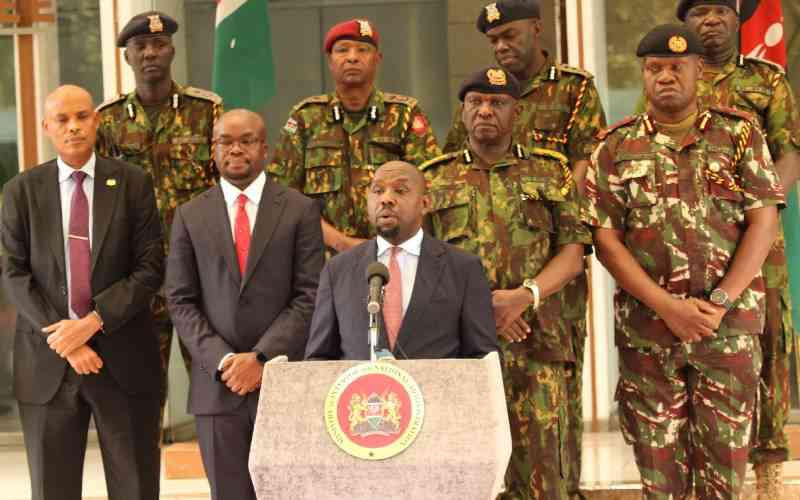Report: Amid Search for $2tn, Nigeria Emerges Top in Africa's Energy Transition Efforts
As Nigeria continues to search for avenues to raise $2 trillion for its carbon reduction efforts between now and 2060, the country has emerged as Africa’s top performer in energy transition for 2025.
According to the latest global rankings released on June 18 by the World Economic Forum (WEF), with a score of 54.8 points, Nigeria ranked 61st worldwide, but showed the strongest improvement among African nations.
The report, developed in partnership with consulting firm Accenture, is based on the Energy Transition Index (ETI) 2025 and measures energy system performance across 118 countries, using 43 indicators grouped into three key areas.
The areas include: Security, sustainability, and equity, along with five readiness factors for energy transition including regulation, financing, innovation, infrastructure, and human capital.
For WEF, the countries were selected based on the availability of consistent data across a minimum set of indicators, with each nation receiving a score from 0 to 100 for every indicator, along with two sub-scores.
Nigeria climbed 48 places since the 2024 index, driven by targeted regulatory reforms, growing investment in clean energy, and localised transition strategies, the report added.
Outside Nigeria, Tunisia followed closely in second place among African countries, ranking 62nd globally. Namibia was third (64th globally), followed by Mauritius (69th), Morocco (70th), Egypt (74th), South Africa (79th), Kenya (88th), Algeria (89th), and Côte d’Ivoire, rounding out the African top 10 at 90th place.
WEF stated that the report provided additional insight into Africa’s broader energy transition efforts, with progress on the continent fueled by stronger political commitment and increased financial flows.
However, the organisation stated significant differences between countries due to underinvestment, low energy access rates, and institutional weaknesses in several nations.
Generally, Sub-Saharan Africa haspd an average score of 48.8 points, while the Middle East and North Africa region posted an average of 52.1 points.
But at the global level, Sweden, Finland, and Denmark maintained their lead in the energy transition rankings. Their top positions reflect long-standing political commitment, strong infrastructure, and diversified low-carbon energy systems.
Also, Norway, Switzerland, Austria, Latvia, and the Netherlands performed well, thanks to their focus on equity, clean energy investments, and expanded renewable capacity. Germany and Portugal completed the global top 10.
The report showed that worldwide progress toward secure, fair, and sustainable energy was picking up speed after years of stagnation. In 2025, 65 per cent of countries in the index improved their overall scores, with 28 per cent advancing across all three key areas: security, sustainability, and equity.
It said that while advanced economies face challenges like grid congestion, high energy prices, and supply bottlenecks, emerging regions such as parts of Europe and Asia are making faster gains, with their progress fueled by targeted reforms, better infrastructure, and greater investment in clean energy.
Nigeria’s energy transition programme, which formally launched in 2022, represents the country’s most ambitious effort to balance climate commitments with pressing energy access needs.
Known as the Energy Transition Plan (ETP), the programme aims to achieve net-zero carbon emissions by the year 2060, while simultaneously lifting millions of Nigerians out of energy poverty and supporting inclusive economic growth.
At the heart of the plan is a major financial commitment. Nigeria estimates that it will require about $1.9 trillion between now and 2060 to fully implement the programme. This translates to an average of $27.7 billion annually, with roughly $10 billion expected from public sources and the remaining $17.7 billion from private sector investment.
The transition plan focuses on several key pillars. One of the largest components is the shift to renewable energy, especially solar. With Nigeria’s abundant sunlight and vast underserved areas, solar power is seen as the most viable path to rapid electrification.
Estimates show that universal solar deployment alone will require over $400 billion in investments. Alongside this, around $135 billion is projected for grid expansion and modernization, enabling the integration of both renewable and traditional power sources into a more reliable national network.
Another central focus is clean cooking. Currently, millions of Nigerian households rely on firewood, charcoal, or kerosene, fuels that are harmful to both human health and the environment. The transition plan sets out to reverse this by expanding access to cleaner alternatives like LPG (liquefied petroleum gas) and modern biomass stoves.
Achieving this goal is expected to cost around $30 billion, with benefits that stretch far beyond climate goals, especially for the health and safety of women and children.












